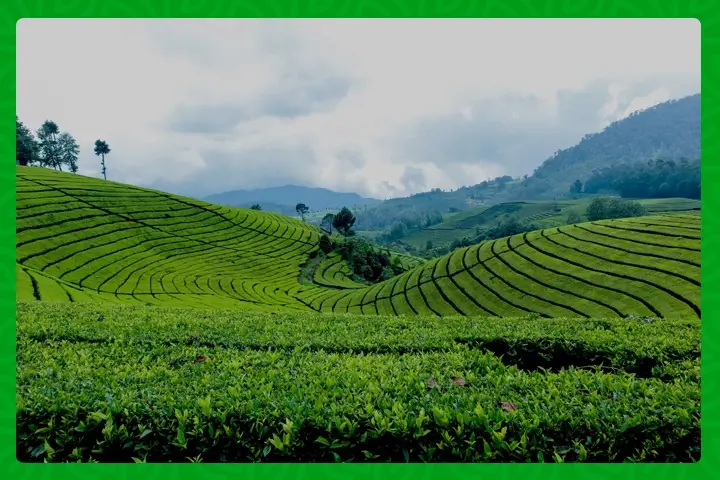
There is a quiet revolution brewing in Kenya’s tea highlands. Instead of talking only about more kilos or better yields, stakeholders are looking to sell a story about place. The Tea Board of Kenya and partners are exploring Geographical Indications, or GI, as a way to brand Kenyan tea by origin, protect its reputation, and win premium buyers around the world.
Why origin matters for a cup of tea
Think of the way wine lovers cherish Bordeaux or how tea buyers treasure Darjeeling. A GI ties a product to a place and the people who produce it. For tea this can mean highlighting the misty slopes of Kericho, the mineral-rich soils near Mt Kenya, or the unique microclimates around the Aberdare ranges. By documenting what makes tea from each area different, Kenya can move from selling bulk commodity tea to selling origin-certified, traceable, high-value products that fetch better prices on global markets.
The project and who is behind it
The feasibility study on GI for tea began in September and is being implemented by CIRAD, the French research centre for agricultural development. The study has backing from the French Development Agency, the French Embassy in Kenya, and Equity Group, among others. It is scheduled to conclude in December 2025. The partnership blends technical expertise, diplomatic reach, and private sector muscle to produce a strategy that could be actionable for farmers and factories.
What the Tea Board and growers stand to gain
Tea Board CEO Willy Mutai has framed the initiative as a way to capture and communicate the distinct qualities that geography gives Kenyan tea. If successful, GI certification could translate into premium prices for origin-designated teas, better recognition for Kenya on the international origin map, and incentives for sustainable farming practices. At the same time, a GI approach could strengthen cooperation between smallholder growers, factories and marketers so value flows more fairly across the chain.
The economics are already persuasive
Putting origin on the label needs to make economic sense. Kenya’s tea sector is not a niche industry. It is a major earner for the country and a lifeline for millions of households. The sector accounts for a large share of foreign exchange receipts, produces in the hundreds of millions of kilogrammes each year, and supports millions of people directly and indirectly, including more than half a million smallholder growers. Properly packaged and marketed origin teas can shift a portion of those revenues from bulk markets into specialty channels where margins are higher.
Legal muscle and continental frameworks
This move is not a shot in the dark. Kenya has legal tools such as the Geographical Indications Act and the Industrial Property Act that can support GI registration and protection. At the continental level, instruments under the AfCFTA provide a basis for defending origin-linked products in regional trade. Those frameworks make it possible to prevent misuse of a name and to ensure the reputation built by farmers and factories is protected commercially.
A practical path from study to shelves
If the study confirms distinct origin characteristics, the next steps are familiar but demanding. Producers will need clear quality criteria, traceability systems, collective governance arrangements and marketing strategies that tell the origin story to buyers and consumers. Training for farmers, investments in processing to preserve origin-specific qualities, and buyer engagement campaigns will be essential. Importantly, smallholders must be part of the governance model so benefits reach the people who grow the leaves.
Expanding markets and new opportunities
Beyond premium markets in Europe and North America, Kenya is actively pushing into regional opportunities. Officials are pursuing deeper trade ties with Morocco, among others, to diversify market outlets and reduce reliance on a few buyers. Targeted market development combined with origin branding could help Kenyan producers capture both volume and value.
Risks to manage
GI is powerful but not automatic. It takes time to certify an origin and even longer to build consumer recognition. Poorly designed governance can concentrate benefits in the hands of a few. For GI to lift incomes, Kenya needs transparency, fair distribution of premiums, and investment in quality control and certification systems that smallholders can access without prohibitive cost.
A moment to reframe the tea story
This GI initiative is about more than legal tags and trademarks. It is about helping communities tell the story behind every cup, and ensuring that story becomes economic value that reaches farms, factories and families. If Kenya can pair its natural advantages with strong governance, thoughtful marketing and inclusive benefit-sharing, the country could move from being known mainly for volume to being celebrated for place, taste and provenance.
Kenya already grows tea that the world drinks. Now it is learning how to sell where that tea comes from so every cup carries a piece of the Kenyan highlands and pays back to the people who nurtured it
Stay updated with the latest farming tips and agriculture industry news from Africa by subscribing to our newsletter. Don’t miss out on valuable insights and updates. Follow us on Twitter, LinkedIn, and Facebook to join our farming community and stay connected with us.


















